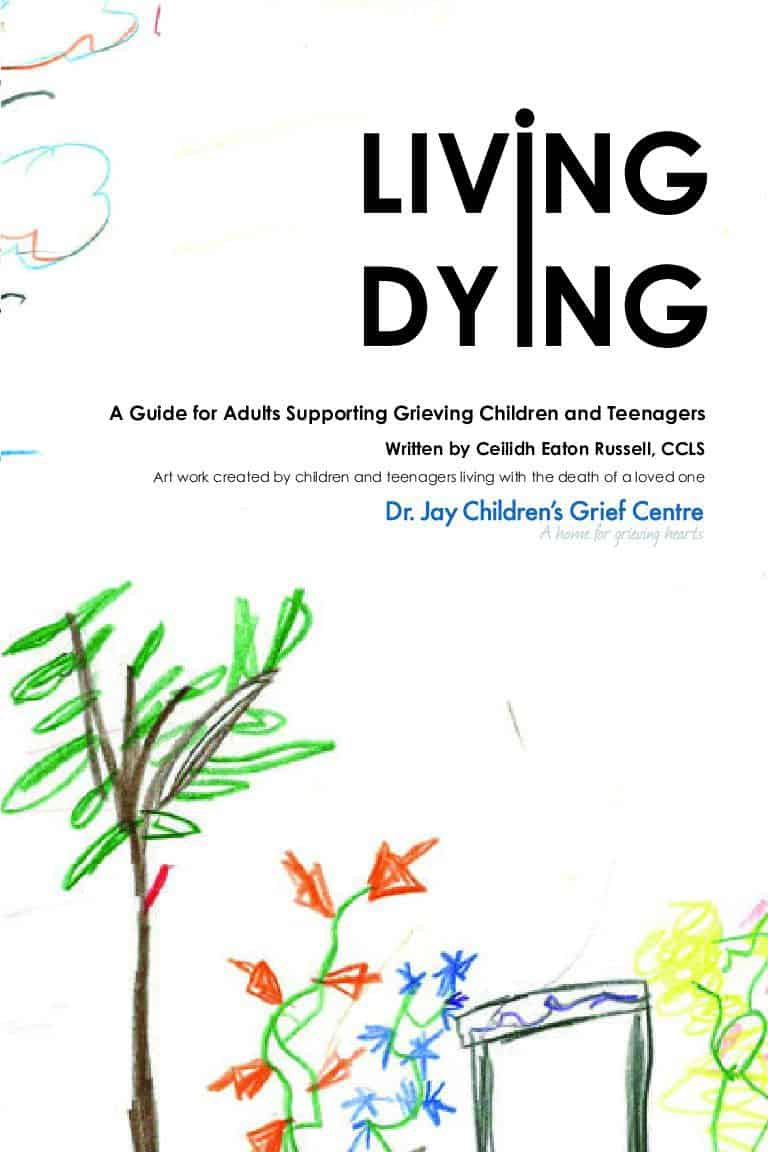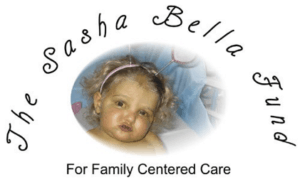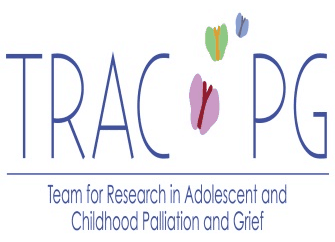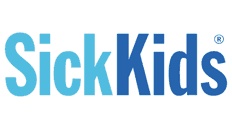Dear Clients, Donors, Volunteers, Staff, Colleagues and Friends of DJCGC
Over the years, the Dr. Jay Children’s Grief Centre has supported hundreds of grieving children, youth and their families while building strength, resilience and hope. We are proud that, with your help, we have been able to provide compassionate care and support to so many young people experiencing profound grief. None of it would have been possible without the passion and dedication of our staff, donors, volunteers and community partners, as well as the extraordinary courage of the children, youth and families we have had the privilege to support.
That is what makes what we have to tell you today so difficult. As of May 28th, 2021 the Centre will cease to operate and we will no longer be offering our services.
Why we are taking this step: Since our inception, we have provided our services solely through the generosity of our donors and grantors. However, donations are variable from year to year and the Centre does not have, nor has ever had, ongoing annualized core funding. This funding model has made it very hard for the Centre to achieve the financial stability needed to plan for the future and provide the continuity of service that our clients deserve.
The COVID-19 pandemic made these challenges much more difficult. Over the last year, thanks to the generosity of our donors, federal wage subsidies and by also carefully monitoring and reducing costs where possible, we managed to support our clients without a significant reduction to services. However, the challenges of long term sustainability for the organization have remained.
Given the economic uncertainty going forward and the harsh reality of the fund-raising and operating climate for small non-profits like ours, the Board of Directors has come to the difficult decision that the Centre must close and begin the process of winding down ethically and responsibly.
What this means for our clients: Our clients have engaged in very meaningful journeys, and we know that this decision is unexpected. Our top priority through this transition is the well-being of the children, youth and families we currently serve. Over the next two months, we will be assisting clients who are currently actively involved in our individual and/or group services. For those clients who may need to continue their care journey beyond that period, we will provide resources and information, and assist in a transition to a qualified care provider wherever possible. Our staff will be following up with their current clients to discuss service needs. Unfortunately, we are not able to re-engage with previous clients or to accept new clients or referrals.
What this means for donors and volunteers: We thank all of our donors and volunteers for your commitment and the support you have offered throughout the years. You truly did make a difference.
The impact of COVID has added to the mounting mental health needs of children, youth and their families, including those who are dealing with grief and loss. While the Centre will close, the need for supporting children, youth and families in their grief will continue. We encourage you to continue your commitment to helping grieving children, youth and families by supporting and advocating for these important services.
We are no longer accepting donations effective Feb. 16, 2021. Thanks to the generosity of our donors, our current resources will allow us to live up to our commitment to provide care to current clients during this wind-down period and, if needed, to help them transition to other qualified service providers. We of course will continue to be fiscally responsible and accountable to our donors.
To our Community Partners: We have been very fortunate to have worked and collaborated with such dedicated partners who are committed to assisting children, youth and their families in their journey. Thank you for your partnership. Unfortunately, we are not able to accept new referrals.
To our Staff: Since its inception, the Centre and its clients have been the beneficiaries of hardworking, dedicated and passionate individuals united in their commitment to helping grieving children, youth and their families. The Centre’s management understands that this decision impacts our staff. We will provide assistance where possible to staff during this period of transition and dissolution. We truly appreciate their commitment and know that they have made a difference to our clients and community.
Please understand that as we work with our clients through this transition, our staffing and resources will be focused on responding to our clients’ priority needs. We will make every effort to reply to inquiries, but there may be delays. We appreciate your patience and understanding.
Finally, on behalf of Dr. Jay Children’s Grief Centre, THANK YOU all for your support and commitment. At this difficult time, we are deeply saddened, but we are also proud of what the Centre has accomplished together with our donors, volunteers, staff, community partners and, most of all, our clients. We could not have done it without you.
The Board of Directors at Dr. Jay Children’s Grief Centre
Yorktown Family Services Grief Program
General Information
Contact about this program
Eligibility:
Family Relationship: Grief related to the death or dying of a parent, sibling, or in-home custodial caregiver.
Age: Children, youth, and families ages 0 – 21 (with limited spots available up to age 29).
Geographic Catchment: The city of Toronto (Toronto, Etobicoke, Scarborough, and North York). Bereavement Referrals: Services are offered regardless of the cause of death or time since the death.
Acute Response Referrals: Our aim is to fast track services where the child/youth or their parent, sibling, or in-home custodial caregiver has a prognosis of 6 months or less, or has recently experienced a sudden or traumatic death.
Referral:
Accepted from any source, including self-referrals. For a referral form, email Danielle at: DanielleC@yorktownfamilyservices.com
Location:
2010 Eglinton Avenue West, Suite 300
York, ON M6E 2K3
Contact:
Maureen Ringlein
416-394-2424 Ext:272
maureenr@yorktownfamilyservices.com
Clinical Services
Individual and Family Counselling
Our counselling services are divided into two streams:
Bereavement Program provides counselling support after a death to process and normalize grief, encourage emotional expression and communication, cultivate and enhance resiliency, explore helpful coping strategies, and support continuing bonds.
Acute Response Program provides services to families where death is anticipated and imminent with a prognosis of 6 months or less. Program goals include preparing children, youth and families for what to expect; supporting open communication; and engaging in legacy work. Please note, this is not a crisis support service – referrals are made through the intake.
Child and Youth Support Program
Our support groups for bereaved children and youth are offered throughout the year. The goal of the program is to create a supportive environment where grieving children and adolescents have the opportunity to connect with similar-aged peers, express themselves, share their grief experiences, and explore their relationship with grief through the outdoors, art, and play. The outdoors provides a context for self-reflection, connection with others, and the natural world. Concurrent caregiver groups may be offered to support caregivers navigating the unique challenges of parenting grieving children and youth.
Family Support Program
Our Family Support Program provides opportunities to connect with a community of grievers who have experienced the death of an immediate family member through ‘Family Nights’ which are workshops developed for parents and caregivers.
For more information on any upcoming group sessions and to find out how to register, please contact Danielle at DanielleC@yorktownfamilyservices.com

Camp Erin Toronto
The Dr. Jay Children’s Grief Centre is thrilled to share the news that our longtime partner, Heart House Hospice, is now hosting Camp Erin Toronto. We are grateful to our friends at Heart House Hospice for continuing this incredible program in support of grieving children, youth and families.
- For more information: Camp Erin Toronto View PDF
- To volunteer with Camp Erin Toronto: View PDF
- To donate to Camp Erin Toronto: View PDF
- Tel: 905-712-8119

Living Dying – a Guide for Adults Supporting Grieving Children and Teenagers
Living Dying – a Guide for Adults Supporting Grieving Children and Teenagers. This practical and accessible handbook is for adults – parents and professionals alike – who know young people who have, or will experience the dying and death of a loved one regardless of age, relationship or the nature of the death.
Based on real clinical experience with families facing palliation, dying, death and grief, Living Dying explores common fears and struggles in a ‘Q & A’ format. Clear, concrete suggestions are provided to help readers talk about illness and death with young people, include them in the care of the dying, and maintain a meaningful connection after a loved one has died.”
To purchase a copy of Living Dying please contact info@virtualhospice.ca
Original & Collaborative Research
In late 2018, Dr. Jay Children’s Grief Centre received funding from the Toronto Urban Health Fund to partner with various community organizations and create resources that support families, children and youth grieving a substance-related death. We spoke to caregivers and youth with lived experience and service providers working alongside families to ensure that what we created provided families with the information they needed to support their children and teens. We created a webinar and resource package for families to watch and download. We also hope to create new resources on this topic, so stay tuned for updates. We would like to thank our funder, The Toronto Urban Health Fund, for their support of this project.
Resources
- Click here to access our newest resources and learn more about the project.
We surveyed parents and caregivers of children and youth who had experienced the illness, dying or death of a family member. We asked them, “how concerned are you?” about a list of common issues.
Overall, we found that parents’ and caregivers’ concerns could not be predicted by their own or the child’s gender, the child’s age, the type of illness or death, or how much time had passed since the death had occurred. Instead, each person’s experience and concerns were uniquely shaped by their life experiences and relationships with the children and youth, and with the person who was ill, dying, or who had died. There is no right or wrong way to feel, and no right or wrong amount of concern.
We did, however, notice that some concerns about the child or youth were slightly lower for parents than they were for other caregivers, like aunts, uncles and grandparents. These caregivers were no more concerned about their own caregiving, but were a bit more concerned about the child or youth’s understanding or grief, perhaps because they had not spent quite as much time with the children as their parents had.
No matter what your relationship is to the child who is grieving, or how concerned you are, we hope we can help. We have pulled together some information and ideas from families and our team, as well as some of our own and other agencies’ resources that we hope will be helpful for parents who share any of these concerns.
We would like to thank our funder, Women’s College Hospital’s Women’s Xchange for their support of this study. We would also like to thank our collaborator, The Nanny Angel Network.
Resources
- Click here to read more about this study
- Click here for a summary for caregivers
- Click here for a summary for service providers
We interviewed siblings between the ages of 8-19 years old, who had a brother or sister who was receiving palliative care. Our longitudinal study involved repeated interviews to help us understand how siblings’ experienced their time and relationships with the child who was ill, as well as with their parents and their peers, and how these experiences changed over time. These siblings’ stories taught us that each of those relationships were both sources of support, comfort and that they were very meaningful. However, at the same time, these relationships were also sources of strain as the ill child’s needs and siblings’ responsibilities increased over time, and their feelings of missing time with their friends and family grew. These siblings’ insights suggest important ways that the adults in their lives can validate and support them as they face these challenges, and help siblings to make the most of the time they enjoy together with loved ones.
We would like to thank our funders and collaborators: The Innovation Fund in Children’s Palliative Care Research/SickKids Foundation, and the Team for Research in Adolescent and Childhood Palliation and Grief Team.



Resources
- Click here to read more about this study
We interviewed bereaved parents whose 8-14 year old children died because of a brain tumour that made it difficult for them to communicate when they were dying. Interviews explored parents’ perspectives of: the communicative needs and abilities of dying children; creative communication strategies they used; and topics that were most important for families to discuss with their children. Parents’ stories highlighted how important communication was for maintaining relationships and intimate connections during the end of their children’s lives. Although our original goal was to design a tool or an “app” to communicate for the child, parents taught us that the simple strategies they used to communicate without technology were better for maintaining their connections and relationships. Based on that, we developed a handbook to share strategies, insights and advice from these parents, with others in similar situations.
This project was undertaken by SickKids Hospital, funded by Brainchild and conducted by a member of our clinical and research team
Resources
- Click here to read a summary of this study:
- Click here to read the handbook created from this study
We interviewed children between the ages of 7-14 years old and their parents about their experiences of childhood brain tumors, and how they communicated about their personal and shared experiences. Children and parents’ stories reflected grief and uncertainty, as well as strategies they used to maintain a positive outlook and a sense of normalcy, to cope and adapt to the struggles and changes in their lives. Parents and children communicated to express their grief and faith, to cope and to align themselves in relation to the illness. They described some “nice conversations” about very difficult topics, highlighting that even emotional or challenging discussions can have very positive effects for families, in helping them to have a shared understanding, feeling united in their experience, and preparing for what lies ahead.
This project was conducted by a member of our clinical and research team at the University of Guelph, through SickKids Hospital. It was generously funded by Brainchild.”

Resources
- Click here to read a summary of this study
In late 2017, Dr. Jay Children’s Grief Centre received funds from the Golda Fine Foundation to facilitate research into Medical Assistance in Dying, specifically the creation of resources that support children and youth to understand more about the process. We brought together a national team of healthcare providers and other professionals working in MAID, children’s grief counsellors and family members to create a list of questions that caregivers might have about talking to children and youth. Together, we constructed responses to these questions and filmed short clips from different perspectives to guide the conversation. We would like to thank our funder, the Golda Fine Memorial Academic Award and our collaborators for their support of this initiative.


![]()

